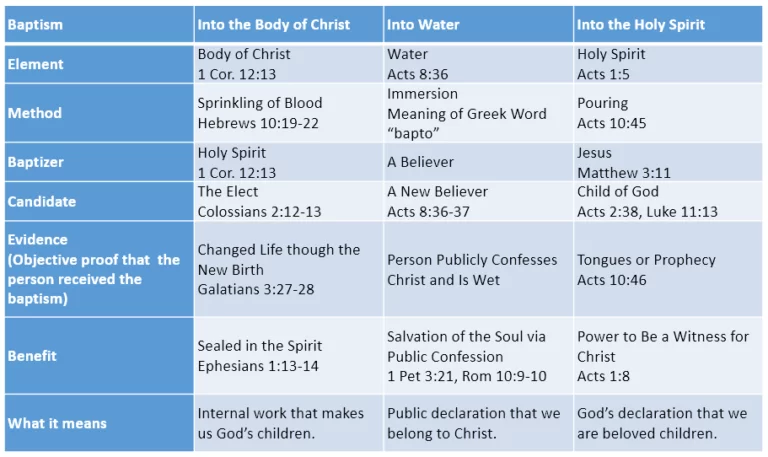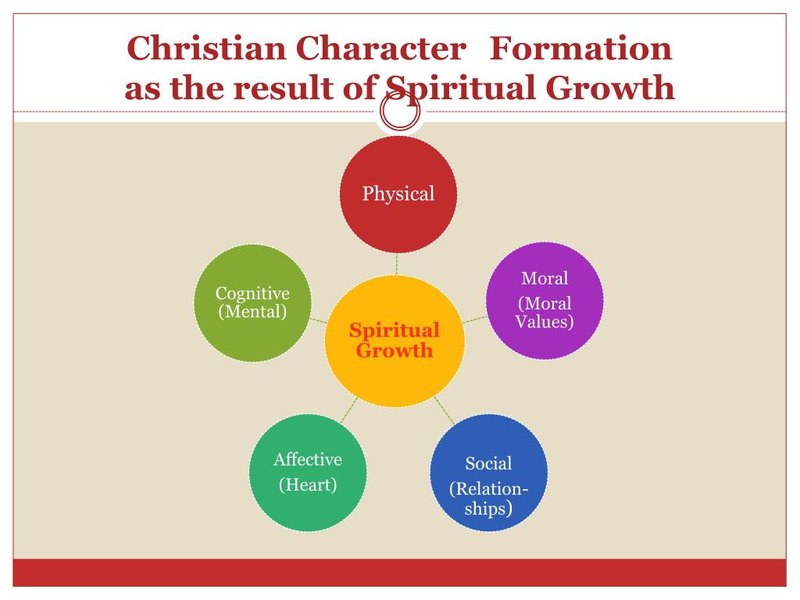· Core Beliefs · 8 min read
Ultimate Guide to Essential Christian Doctrines: Simplifying the Trinity, Salvation, and More
Discover the ultimate guide to essential Christian doctrines - simplified explanations on the Trinity, salvation, Holy Spirit, baptism, communion, and end times theology. Unravel the core beliefs of Christianity in an approachable manner.

Ultimate Guide to Essential Christian Doctrines: Simplifying the Trinity, Salvation, and More
Christianity is a diverse and rich faith with a long history of theological development. Essential Christian doctrines provide a framework for understanding the core beliefs and teachings of the Christian faith. In this comprehensive guide, we will simplify key doctrines such as the Trinity, salvation, the role of the Holy Spirit, baptism and communion, and end times theology. We will explore these topics from an authoritative Christian perspective, relying on credible sources within the niche.
1. What is the Trinity and how is it explained simply?
The doctrine of the Trinity is foundational to Christian belief. It asserts that there is one God who eternally exists as three distinct persons: the Father, the Son (Jesus Christ), and the Holy Spirit. This means that while there is only one God in essence, there are three distinct persons within the Godhead.
According to Desiring God, “God is one in essence and three in person.” This definition expresses three crucial truths: (1) The Father, Son, and Holy Spirit are distinct persons, (2) Each person is fully God, (3) There is only one God. The Trinity may be best understood as a mystery beyond human comprehension.
As Christianity Today explains, “The Trinity is not three gods in one; it is one God in three persons.” While this concept may be difficult to fully grasp, it highlights the complex nature of God’s being as revealed in Scripture.
2. What is the nature of salvation and grace?
Salvation is at the heart of Christian doctrine. It refers to the deliverance of humankind from sin and its consequences through faith in Jesus Christ. According to Ligonier Ministries, “Salvation has been accomplished by the triune God in eternity past, accomplished by the Son in His earthly ministry, accomplished by the Holy Spirit in applying salvation to the elect, and will be consummated in the future.”
Grace is an essential aspect of salvation. It is the unmerited favor and love of God towards humanity. As Ephesians 2:8-9 states, “For it is by grace you have been saved, through faith—and this is not from yourselves, it is the gift of God—not by works, so that no one can boast.” Grace cannot be earned; it is freely given by God.
The Role of the Holy Spirit in Salvation According to Acts 1:8, the Holy Spirit empowers believers to be witnesses for Christ. The Holy Spirit convicts individuals of their need for salvation and regenerates their hearts, enabling them to respond in faith. The Holy Spirit also indwells believers, guiding them in their Christian walk and sanctifying them.
3. How does the Holy Spirit operate in the life of a believer?
The Holy Spirit plays a vital role in the life of a Christian. He is the third person of the Trinity and is actively involved in various aspects of believers’ lives.
The Holy Spirit Convicts: According to John 16:8-11, the Holy Spirit convicts people of sin, righteousness, and judgment. He reveals our need for a Savior and draws us to Jesus Christ.
The Holy Spirit Regenerates: Titus 3:5 tells us that we are saved “by the washing of regeneration and renewal of the Holy Spirit.” The Holy Spirit brings about spiritual rebirth in individuals, making them new creations in Christ.
The Holy Spirit Empowers: Acts 1:8 states that believers will receive power when the Holy Spirit comes upon them. The Holy Spirit equips believers with spiritual gifts to serve and edify others within the body of Christ.
The Holy Spirit Guides and Teaches: Jesus promised that the Holy Spirit would guide believers into all truth (John 16:13). The Holy Spirit illuminates Scripture and helps believers understand and apply God’s Word to their lives.
4. What is the significance of baptism and communion in Christianity?
Baptism and communion are two significant sacraments or ordinances observed by Christians.
Baptism: Baptism symbolizes the believer’s identification with the death, burial, and resurrection of Jesus Christ. It signifies a person’s repentance from sin, their faith in Christ, and their commitment to follow Him. Baptism is often performed by immersion in water.
As Jesus commanded in Matthew 28:19, believers are baptized “in the name of the Father and of the Son and of the Holy Spirit.” Baptism is a public declaration of faith and an initiation into the Christian community.
Communion (or the Lord’s Supper): Communion commemorates the sacrificial death of Jesus Christ on the cross. It consists of sharing bread and wine (or grape juice) as symbols of Christ’s body and blood. Through this act, believers remember Christ’s sacrifice and express their ongoing faith in Him.
According to 1 Corinthians 11:26, communion also proclaims the Lord’s death until He comes again. It serves as a reminder of Christ’s redemptive work and points to the future hope of His return.
5. Overview of end times theology
End times theology, also known as eschatology, deals with the study of biblical teachings concerning the last days, the return of Christ, and the ultimate destiny of humanity.
Different Christian traditions have varying interpretations of end times events. However, there are common themes that unite believers across denominations:
The Second Coming of Christ: Christians believe that Jesus Christ will return to earth in glory to judge the living and the dead. This event is eagerly anticipated and serves as a basis for hope and encouragement.
Resurrection and Final Judgment: The Bible teaches that there will be a bodily resurrection of both believers and unbelievers. Believers will receive eternal life with God, while unbelievers will face eternal separation from Him.
The New Heaven and New Earth: Scripture describes a future state where God will create a new heaven and a new earth, where righteousness dwells. This is seen as the ultimate fulfillment of God’s redemptive plan for humanity.
While there are differences in the interpretation of specific events and timelines, Christians are united in their anticipation of Christ’s return and the hope of eternal life in His presence.
6. How do Christian doctrines shape the faith and life of believers?
Christian doctrines provide a framework for understanding and living out the Christian faith. They anchor believers in core truths that guide their beliefs, values, and actions.
Doctrine and Worship: Essential Christian doctrines shape worship practices, liturgy, and hymnology. They inform the content of prayers, creeds, and confessions used in corporate worship settings.
Doctrine and Ethics: Christian ethics are rooted in the moral teachings derived from biblical doctrine. Doctrines such as love, justice, forgiveness, and compassion provide the foundation for ethical decision-making and behavior.
Doctrine and Spiritual Growth: Studying and understanding Christian doctrines deepens believers’ relationship with God. Knowledge of doctrine enables believers to grow in their faith, discern truth from error, and apply biblical principles to their daily lives.
Doctrine and Unity: Christian doctrines serve as a unifying force among believers. They provide a common language and understanding within the diverse body of Christ, fostering unity amidst diversity.
By grounding their faith in essential doctrines, believers are equipped to navigate the challenges of life, engage in meaningful worship, live ethically, grow spiritually, and experience unity within the broader Christian community.
7. Addressing alternative viewpoints on essential Christian doctrines
While essential Christian doctrines form the core beliefs of Christianity, there are alternative viewpoints or interpretations held by various Christian traditions. It is important to understand and respect these differences while upholding the authoritative perspective of the niche.
When exploring alternative viewpoints, it is essential to consider their strengths and weaknesses in relation to the dominant perspective within the niche. Engaging in respectful dialogue and seeking common ground can foster understanding and unity within the body of Christ.
However, it is crucial to hold fast to the foundational doctrines that have been affirmed throughout Christian history. These doctrines are grounded in Scripture and have stood the test of time, providing a solid foundation for believers.
8. Practical applications of essential Christian doctrines
Essential Christian doctrines have practical implications for believers’ lives. Here are a few practical applications:
Embrace the mystery: Recognize that some aspects of faith, such as the Trinity, may be beyond complete human comprehension. Embrace the mystery and trust in God’s wisdom and sovereignty.
Share the good news: Understanding the nature of salvation and grace should motivate believers to share the gospel with others. Communicate God’s love and forgiveness through word and deed.
Cultivate a relationship with the Holy Spirit: Seek to develop an intimate relationship with the Holy Spirit through prayer, study of Scripture, and reliance on His guidance in daily life.
Participate in baptism and communion: Engage in baptism as a public declaration of faith and participate in communion regularly to remember Christ’s sacrifice and anticipate His return.
Live with hope: Embrace the hope of Christ’s return and live in light of eternity. Let this hope shape how you approach challenges, love others, and prioritize your values.
By applying essential Christian doctrines to everyday life, believers can experience a deeper connection with God, grow in their faith, and actively participate in God’s redemptive work in the world.
In conclusion, essential Christian doctrines provide a framework for understanding core beliefs and teachings within Christianity. The Trinity, salvation, the role of the Holy Spirit, baptism and communion, and end times theology are foundational aspects of the Christian faith. By exploring these doctrines from an authoritative perspective and integrating practical applications, believers can deepen their understanding of the Christian faith and live out its principles in their daily lives.



